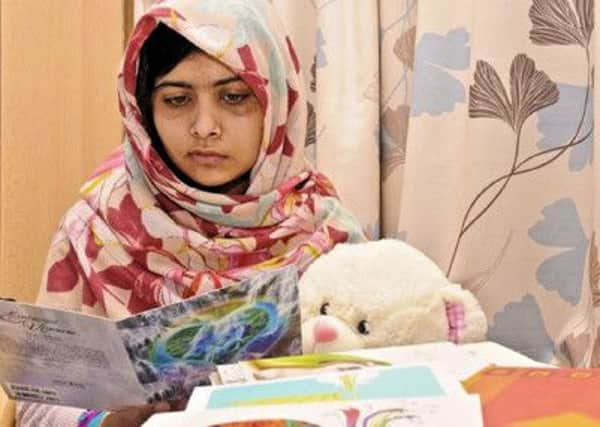Our heroes of the modern world can make it a better place


It’s hard not to be moved by the sight of people forming human chains as they tirelessly sift through the flattened remnants of what used to be homes and classrooms in the desperate hope of finding signs of life. Natural disasters and human tragedies can often bring out the best in us and prove to us that ordinary men and women are capable of extraordinary feats. But has this kind of heroism changed and what do we regard today as heroic?
The word “hero” comes from the Greek “heros”, meaning “protector” or “defender,” and the history books are littered with these so-called heroes most of whom, like Henry V or Lord Nelson, earned the description for their exploits in battle.
Advertisement
Hide AdAdvertisement
Hide AdBut for the military heroes of the past read the sporting heroes of today. Superstars like Wayne Rooney and Kevin Pietersen are feted by fans and have become heroes in an inspirational sense. So, too, have the likes of Jessica Ennis, Mo Farah and David Weir who became national icons last summer following their exploits in the London Olympics and Paralympics.
Tomorrow evening in York, Professor Susan Neiman, director of the Einstein Forum, an international institute for public intellectual life based in Berlin, is giving a public lecture, Understanding Heroes, in which she explores ideas of heroism in the modern age.
Prof Neiman, who has written books on the subject, believes attitudes towards heroism have changed dramatically. “In the last 60 years, we have moved away from a culture where we knew who our heroes were,” she says, speaking from Germany. “Heroes used to be the subjects of history but now, particularly in the West, victims are the subject of history rather than heroes.”
This has muddied the waters and meant modern ideas of heroism have not only broadened but become more complicated. Having said that, she believes heroism can still be defined. “There’s a difference between being a hero and being martyr, no one has to die, but it involves somebody taking a risk. It might be someone risking their life for other people, or it could be someone who, through their exploration, has in some important and interesting ways contributed to our understanding of the world,” she says.
Advertisement
Hide AdAdvertisement
Hide AdThese days in our era of global news and social networking anyone can become a hero overnight, but this wasn’t always possible. “Up until the early 19th century you had to be an aristocrat to be a hero, ordinary people weren’t regarded as heroes.”
That view changed in the aftermath of two world wars during which Stalin and Hitler were idolised by many. “For a time there was almost an allergy to the notion of heroism. But today if you take Osama Bin Laden he’s a hero to millions of people, which is actually quite terrifying,” she says.
“We’ve heard the phrase ‘one man’s terrorist is another man’s freedom fighter,’ but that should be the start of the discussion not the end of it, because we can make a distinction between the two.”
Heroism involves someone going above and beyond the call of duty. “Daniel Ellsberg released the Pentagon Papers because he felt the public should know what was going on in the war in Vietnam. He was aware of the risks but he felt a moral imperative to speak out,” she says.
Advertisement
Hide AdAdvertisement
Hide Ad“I have a friend, an Israeli professor, who spends his weekends helping Palestinians to stop settlers moving in and fixing their wells. That’s a contemporary example of a hero.”
Then there’s Malala Yousafzai, the Pakistani schoolgirl who survived being shot in the head by a Taliban gunman. “The message we keep being told is we can’t expect too much from our lives and that we should get used to it, so as we grow up we expect less and less from ourselves and the world.
“But someone like Malala is a real heroine and she ought to shame us all into making more of our lives and, in a small way, to make the world better. That’s the function of a hero.”
Professor Neiman’s lecture Understanding Heroes is a free event and takes place tomorrow at 6.30pm at the King’s Manor, University of York.